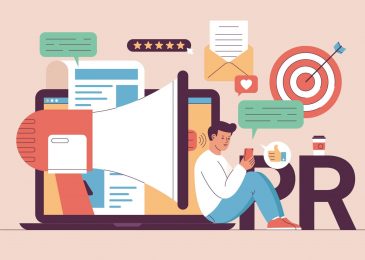5 Successful Tips To Prepare for Your Next Interview
5 Successful Tips To Prepare for Your Next Interview –
When it comes to having successful job interviews, preparation is paramount. Even if you’re not a natural interviewee, or if you’re feeling disheartened because you’ve had to go to lots of interviews lately, you can always do something to increase the likelihood of success. At the very least, preparation can put you at ease and make you feel more relaxed, which can never be wrong.
For those reasons, let’s run through 5 successful tips to prepare for your next interview:
1. Research the Company –
It would be best if you always went to an interview knowing more about the company than what the job description says. Just how knowledgeable you should be will depend on the position you’re applying for, as staff, middle management, and C-level execs don’t have access to the same level of information. Even if you lack the resources to dig deep, you should still give it the best shot you can.
At the very least, you should have a pretty clear idea about the company, its place in the industry, and your position within it. It would also help to learn about the products or services and the markets where the company is offering them. Finding out about the people who work there can be extremely beneficial, especially if you manage to find out things about the HR person who’ll be interviewing you.
Also Read – What Are Student Loan Forgiveness Programs That Can Benefit You?
2. Prepare a Presentation –
There are several reasons why you should prepare a presentation for your next job interview. Presentations are a great way to learn how to talk about yourself and your previous experiences. They’re an excellent opportunity to take stock of your situation. And they’re not even that hard to create if you use the right interview presentation templates to help you out.
While you’re preparing your presentation, try to anticipate the questions that are likely to come your way during it. Try to incorporate some answers into the presentation itself, but don’t be afraid to leave some things for the interviewer to ask. That will give you an extra chance to show that you’re comfortable with going off-script.
3. Prepare Your Questions –
During most interviews, you’ll get an opportunity to ask some questions. While they seem like a chance to broaden your knowledge about the company, its culture, and work processes, it can also serve to showcase what you already know about the company. If there’s something you haven’t had the opportunity to say during the interview, find a way to include it into a meaningful question.
If this sounds too difficult, don’t worry – there are still lots of things you can generally be interested in, and this is where you get to satisfy your curiosity. Remember always to avoid general questions and questions to which you should know the answers. Throw in at least a couple that will give you a sense of your future in the company if you’re awarded the job.
4. Be Mindful of Your Body Language –
A large part of interpersonal communication happens in aural and visual cues that are sometimes so small we can barely say that we’ve noticed them. But it’s incredible how much information people will get, even subconsciously, from your posture, gestures, and the way you talk. People who know a thing or two about communication will get from the even more.
The trick with body language is to use it to your advantage and project a confident and relaxed image. It helps to be confident and comfortable in the first place, too, and the tips on this list should help move you in that direction. If you go through the effort of learning a couple of common no-noes of body language, you’ll have a solid foundation.
5. Get Everything Ready Well Before the Interview –
The rule of thumb says that you should bring a printout of your CV with you on every interview. Common sense says that you should be well-dressed and professional-looking, too. This article tells you to go into the interview well prepared mentally and behaviorally.
That’s a lot of things you need to juggle, and for that reason you must do it all well before the interview. The day before the meeting is where the preparation should end at the latest. On the day of the interview, you should have your CV and presentation ready, your clothes picked, and all the research done and close to hand. That way, you can go into the interview as relaxed as possible.
Interviews can be tough, but you can do a lot to help yourself and make them easier to handle. By knowing exactly where you’re going for an interview and why, being ready to answer and ask questions, and trusting your body language, you can take the edge off every interview. As long as you manage to prepare all of it in time, that is.
Also Read – Make Your Graduation Even More Special With A Video





